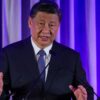Technology
Temu and Shein face large price lists. However don’t depend them out of the U.S. e-tail scene, professionals say
The closure of a business loophole and prohibitive price lists on China have upended Temu and Shein’s industry style in the USA. And but the e-commerce firms are prone to stay a dominant pressure in American on-line retailing, professionals counsel.
On Friday, the de minimis rule — a coverage that had immune U.S. imports usefulness $800 from business price lists — formally closed for shipments from China. This has open Temu and Shein uncovered to tasks as high as 120% or a flat rate of $100, eager to get up to $200 in June.
The small-package tariff exemption were key to the corporations’ skill to uphold price range costs at the products they send from China. Now that its long gone, costs on Temu and Shein have been surging, with the previous finishing direct shipments from outdoor the U.S. altogether.
The exchange will probably be welcomed via many detractors of de minimis, between the two of them U.S. lawmakers, exertions unions and shops, who’ve argued that Temu and Shein abused the exemption to undercut native companies and overspill the rustic with illicit and counterfeit merchandise.
However regardless of the pristine business demanding situations that Temu and Shein face, ecommerce and provide chain professionals instructed CNBC that the corporations are nonetheless able to competing with their opponents within the U.S.
“Don’t count them out … Not at all. These kinds of Chinese e-commerce apps are very adept and agile. They have contingency plans in place and have taken the necessary steps to cover the tariffs from a margin perspective,” stated Deborah Weinswig, CEO and founding father of Coresight Analysis.
“I personally believe, if anything, [America’s e-commerce] game has been accelerating in favor of Temu and Shein … I wouldn’t be surprised if the competitiveness gap actually continues to widen,” added Weinswig, whose analysis and advisory company works with purchasers throughout tech, retail and provide chains.
Contingencies in park
The lack of the de minimis exemption had lengthy been expected, with U.S. President Donald Trump temporarily closing it in February. In preparation, Temu and Shein had been accelerating localization strategies for the U.S.
Scott Miller, CEO of e-commerce consulting firm pdPlus, told CNBC that Shein and Temu will continue to onboard goods from American sellers onto their apps to protect them from tariffs.
“Many of the current sellers on Temu and Shein are located in China or countries nearby, but not all. Local U.S. companies have been joining these platforms at an accelerating pace … several of our clients have onboarded or began the process of onboarding in just the past few months,” he said.
While margins for more localized brands and other sellers won’t be as high as those for China-based sellers on the platforms, they can be competitive, he said.
He added that in the case of Temu, vendors are attracted to lower fees, lighter competition and greater assistance with onboarding and setting up sales channels compared with what Amazon offers.
In recent days, Temu, which is owned by Chinese e-commerce giant PDD Holdings, has begun exclusively offering goods shipped from local warehouses to U.S. shoppers.
Many of those goods are still sourced from China but then shipped in bulk to U.S. warehouses, according to experts. While these bulk items are subject to tariffs, they also benefit from economies of scale.
This development is likely to see the variety of products on Temu scaled back, said Henry Jin, an associate professor of supply chain management at Miami University. However, he added, Temu is likely to resume direct shipments from China, depending on the outcome of the trade war between the U.S. and China.
Shein, meanwhile, has leaned into supply chain expansion, building manufacturing operations in countries such as Turkey, Mexico and Brazil, and reportedly plans to shift to Vietnam.
The corporate seems to nonetheless be delivery at once from China and most likely has more space to take in price lists on account of its “sky-high” margins in its core fast-fashion industry, Jin stated.
“If there’s one thing that Chinese companies are good at, it’s operating on a razor thin margin in an intensely competitive, if not adverse environment … they find every scrap that they can to survive,” he added.
Aggressive costs?
Contingency plans apart, professionals agree that Trump’s business coverage will proceed to have an effect on costs on Temu and Shein. The firms first introduced they have been elevating costs in mid-April to counter price lists.
In keeping with information from Coresight, costs throughout buying groceries sections on Shein rose between 5% and 50% within the extreme part of April, with the sharpest rises open in toys and video games and attractiveness and fitness.
Alternatively, many e-commerce professionals stay assured that Temu and Shein will proceed to turn out price-competitive.
Coresight’s Weinswig stated the 2 firms have in the past been in a position to do business in merchandise at a 3rd of the costs on Amazon for similar items. So, although they greater than double the costs to take in the affects of price lists, many items may just stay less expensive than the ones on American e-commerce websites and shops.
Jason Wong, who works in product logistics for Temu in Hong Kong, famous this dynamic when chatting with CNBC utmost week, likening Temu to a greenback collect. If costs on the greenback collect advance from $1 to $2, it’s nonetheless a greenback collect, he stated.
Moreover, Trump’s business price lists on China and alternative business companions have additionally affected American shops and e-commerce websites like Amazon.
Alternative benefits
When Endlessly 21 filed for chapter coverage previous this occasion, it blamed Shein and Temu’s utility of the de minimis exemption, which it stated “undercut” its industry.
However professionals say that completely attributing the luck of Shein and Temu to that business loophole misses most of the alternative elements that experience made them damage hits within the U.S.
In keeping with Anand Kumar, assistant director of analysis at Coresight Analysis, Temu and Shein owe a dozen in their luck to their very agile provide chains that adapt hasty to shopper tendencies.
As an example, Shein’s small-batch manufacturing — wherein product types are to start with introduced in restricted amounts, generally round 100-200 pieces — permits it to check and scale merchandise successfully.
Any other secret’s the corporations’ programs, which utility diverse methods to uphold person pastime, together with prevailing telephone notifications, product advice algorithms and possibly maximum particularly, continuously exhibiting discounted costs from promotions and flash gross sales.
Temu was once providing a “mega savings extravaganza” for American shoppers on Monday. Probably the most bestselling pieces on sale incorporated chrome steel hook income for $1.45 and a fitted bed abode for $11.54. It’s concealed if the discounted native items have been stockpiled sooner than price lists got here into impact.
As well as, app customers will incessantly be met with mini-games that provide other coupons or tactics to earn rewards, in addition to alternatives to shop for “mystery boxes” with various merchandise.
That “gamification strategy” certainly performs into the shopper psychology of many U.S. customers who incessantly purchase pieces out of the joy of having the ability to get a stunning offer, stated Miami College’s Jin.
Professionals additionally flagged that Temu and Shein were very efficient at advertising and marketing, together with in the course of the harnessing of livestreaming and social media.
At the alternative hand, in keeping with Coresights’ Weinswig, American shops have didn’t adequately acknowledge blackmails from Temu and Shein and modify their provide chains and pricing fashions.




